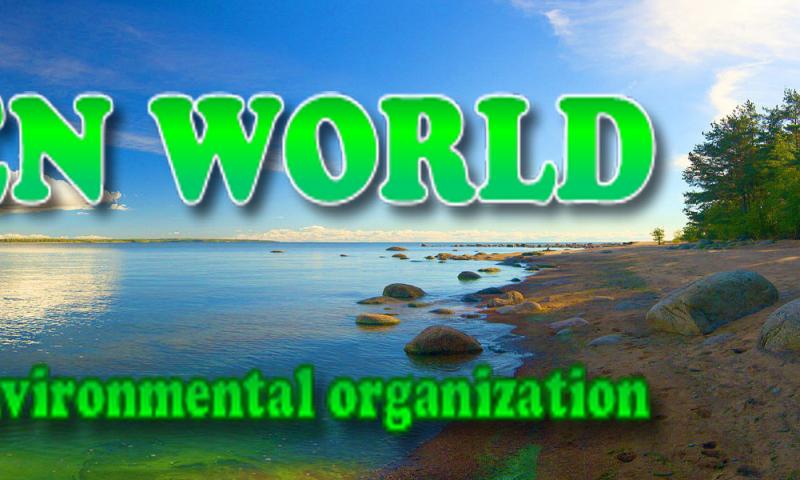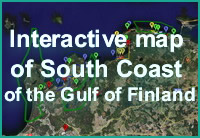
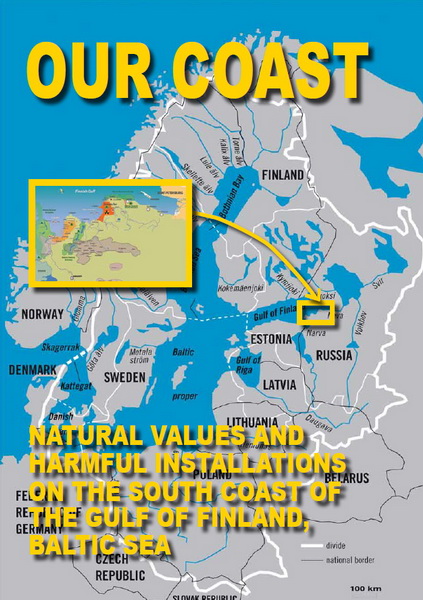 |
The South Coast of the Gulf of Finland |
|---|---|
| Natural Values and Harmful Installations |
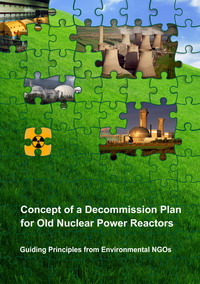 |
Concept of a decommission plan for old nuclear power reactors |
|---|---|
| Guiding Principles from Environmental NGOs |
The Lessons of Fukushima For French & Russian Power Plants
Baltic Newsletter of Green World #120 oktober 11, 2012
All 58 French nuclear reactors of the 19 French nuclear power plants do not meet post-Fukushima safety requirements. This basic conclusion of stress tests of French nuclear power plants by the European Union (EU) was published October 1 in the French newspaper Le Monde. http://www.lemonde.fr/planete/article/2012/10/01/les-defaillances-de-securite-des-19-centrales-nucleaires-francaises-pointees-par-bruxelles_1768510_3244.html
A more detailed analysis of the French nuclear safety issues is contained in the report submitted by the European Commissioner for Energy Gunther Oettinger. The French energy blocks did not meet 5 - 7 out of 11 criteria for safety assessment. Overall, European regulators assessed the state of nuclear safety of 134 reactors at 68 sites in 14 European countries.
After the testing, the experts did not require the closing of any reactors in the EU. But it will be necessary to invest 10 to 25 billion euros to bring them up to modern safety standards. This is between 30 to 200 million euros for each of them.
“Our security control was strict, serious and conducted in conditions of full transparency. It showed where things are not right, and where improvements need to be made,” said Guenther Oettinger.
AND AS TO THE LESSONS OF FUKUSHIMA FOR RUSSIA?
Sergei Kiriyenko, head of Rosatom, announced a month after the tragedy of Fukushima of the successful completion of "stress tests" of Russian nuclear power plants http://rus.ruvr.ru/2011/04/19/49131619.html .
However Rosatom failed to disclose any of its criteria checks, nor the text of the report, which could verify the reliability of such optimistic conclusions.
Shortly after this announcement, it became clear how this statement corresponds to the reality. The world's oldest Chernobyl reactor of the Leningrad nuclear power plant (NPP) was not able to start work after the planned reparation. Reasons - a security problems with swollen and cracked graphite. This unit has a license that allows it to operate for 15 years more design limit - up to 2018.
Rosatom ignores one of the important lessons of Fukushima - the unacceptability of the concentration in one place so large a number of nuclear and radioactive facilities. This is just one example. On the shore of the Baltic Sea, 40 km from the border of the five million residents of St. Petersburg, in Sosnovy Bor, a radius of 2 km is concentrated nine nuclear reactors and 4 continue to be built.
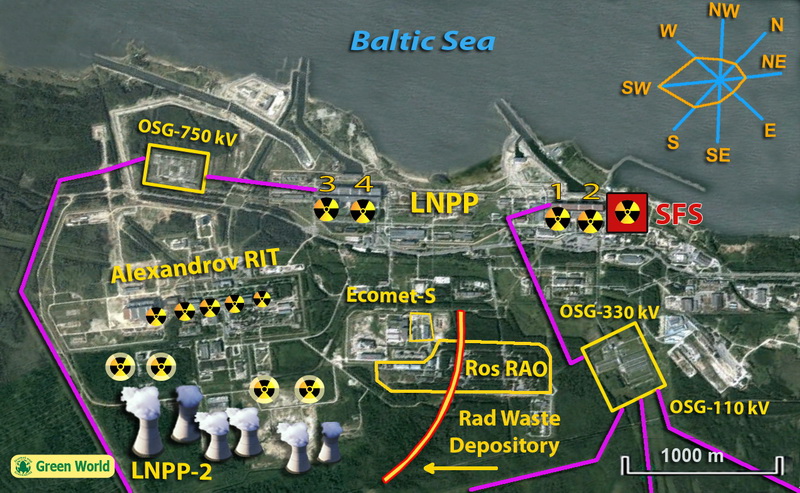
In addition, on this site, in temporary storage pools for spent nuclear fuel of the Leningrad nuclear power plant (SFS), and 90 meters from the Baltic Sea are concentrated fuel rods equivalent to 25 RBMK-1000 energy blocks. Nearby is Ecomet-S - the largest factory in Europe for radioactive metal melting and regional storage site of radioactive waste RosRAO, which has accumulated about 70,000 cubic meters of hazardous waste, as well as the storage of liquid and solid radioactive waste LNPP.
But this is not enough for Rosatom, as currently here at a depth of 60 meters and a distance of about a kilometer away from the Baltic Sea is advancing a project of regional radioactive waste disposal facility of up to 250,000 cubic meters. Here they will bury long-lived waste containing plutonium-239 with a half-life of 24,000 years.
Environmental committees of the regional parliaments of Leningrad Oblast and St. Petersburg, basing their conclusions on the opinions of independent experts
http://www.greenworld.org.ru/sites/default/greenfiles/Resume_po_gradirniam.pdf recognized (25/09/2012) at a special meeting held in Sosnovy Bor that the development of the nuclear complex is dangerous (in Russian): http://www.greenworld.org.ru/?q=nucindustry_21012 .
The discussions resulted in regional legislators now proposing to change the project Leningrad NPP-2 and abandon the construction of the disposal facility in Sosnovy Bor. These demands are contained in the draft proposal of regional deputies, which should be approved in the near future.
Oleg bodrov, Gennady Shabarin & Nathaniel Trumbull
tel. +7 921 74 52 631
Distribution of our information is encouraged. When reprinting please refer to our periodical.

